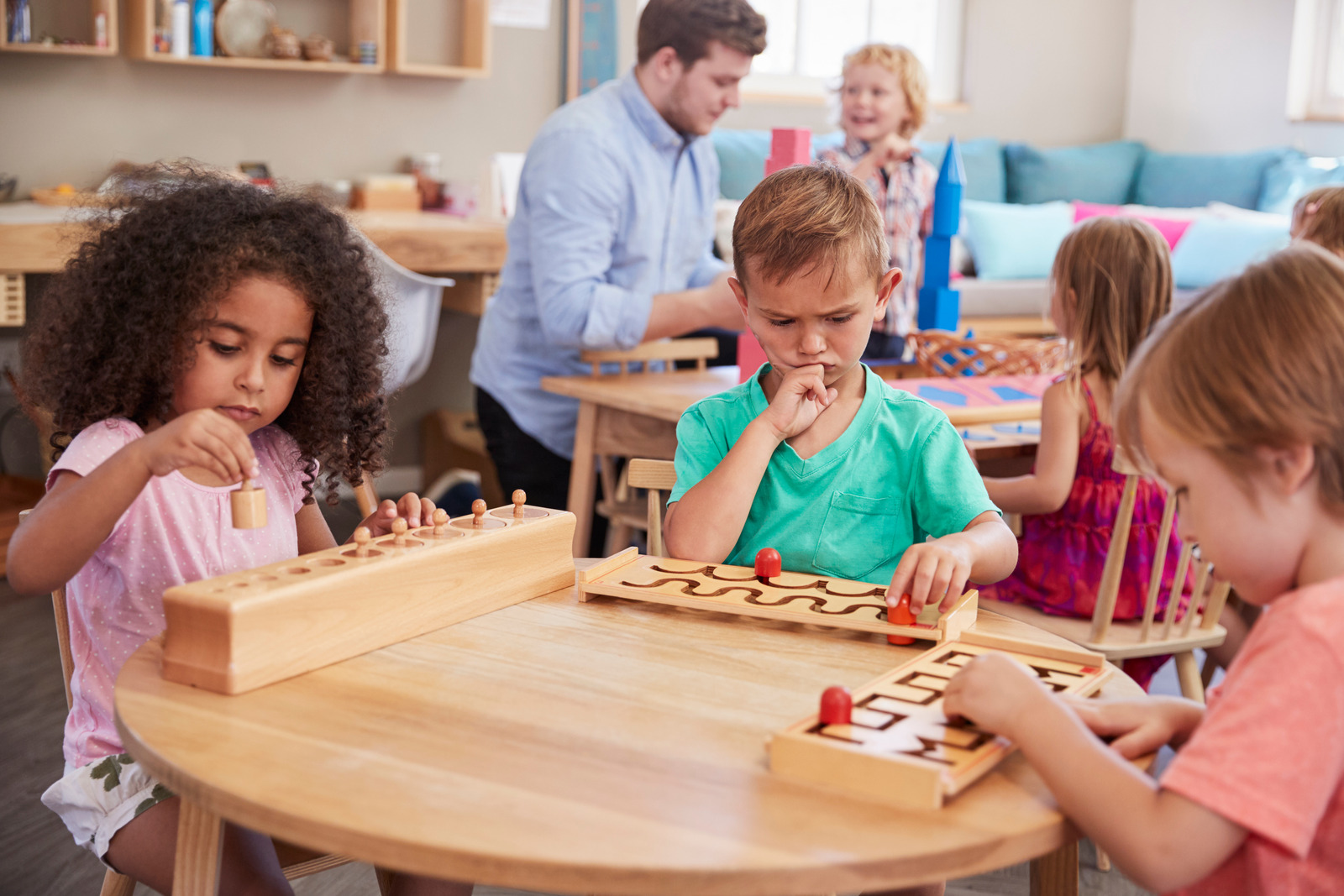


The purpose of the Montessori education is to help each child develop within him or herself skills for a lifetime of creative learning. It is to develop the basic ideas, attitudes and skills essential for success in school and life! A thirst for learning: habits of concentration, sense of order, independence, control of movement, functional creativity and self confidence. In the Montessori classroom there are two ways to approach this: first, by allowing each child to experience the excitement of hands-on jobs by exploring his own choice rather than by being forced; second, by helping to perfect all of the child's natural tools for learning, so that his or her ability will be at a maximum in future learning situations. The Montessori materials have this dual, long range purpose in addition to the immediate purpose of giving specific information to the child.
Freedom is a prerequisite condition for learning. Freedom is a goal, not a starting point. A free child (or adult) is one who has developed his/her potential and prefers to work out problems for him or herself but is capable of asking for and receiving direction when necessary. An undisciplined and unsettled child (or adult) is not free, but is a slave to his/her immediate desires and is excessively dependent on others. (Whether parent, teacher, wife, or husband) The free child, of course grows into a free adult. Freedom within the classroom means, that the child is free to move about the room at will, to talk to other children, to work with any equipment whose purpose the child understands, or to ask the teacher to introduce new material to him/her. The child is not free to disturb other children at work or abuse the equipment that is so important to his/her development. Montessori allows each child to develop skills as they become ready for them at their own pace.
All certified teachers have completed a year long combination theory internship program; and have successfully completed oral and written examinations in early childhood education, by either A.M.S. or A.M.I. schools. The teacher's task is to work with individual children, introducing materials, and giving guidance when needed. The competent Montessori trained teacher creates an environment with hands on jobs, for individual and group work. One of the primary tasks is careful observation of each child in order to determine his/her needs and to gain a knowledge he/she needs in preparing the environment to enhance the child's growth. The teacher's method of teaching is indirect in that he/she neither imposes upon the child as in direct teaching nor abandons the child as in a non directive permissive approach. Rather, she is constantly alert to the direction in which the child has indicated his/her wishes to go, and the teacher actively seeks ways to accomplish the child's goals.
The following books are available at most libraries: